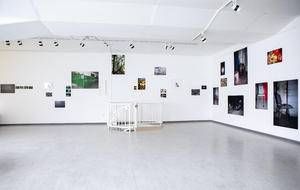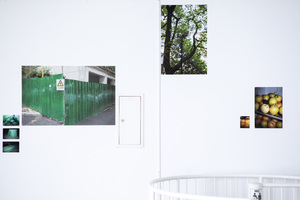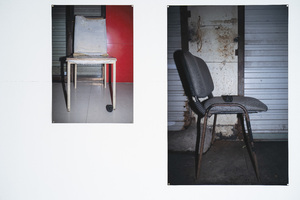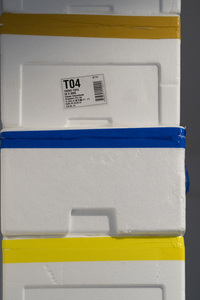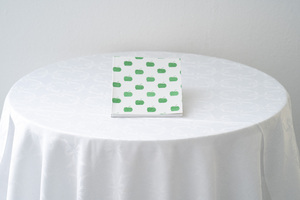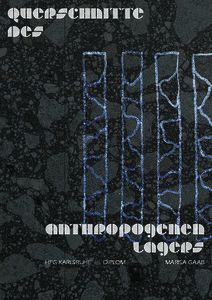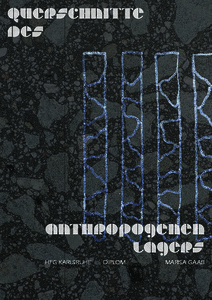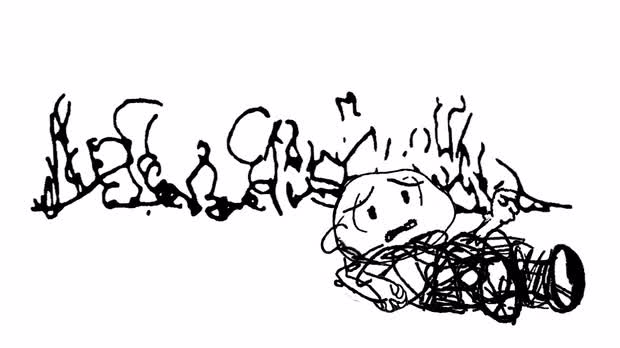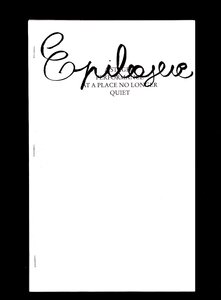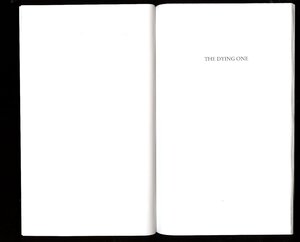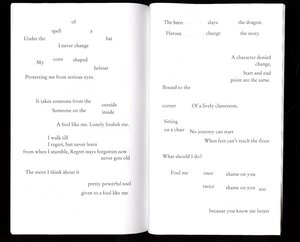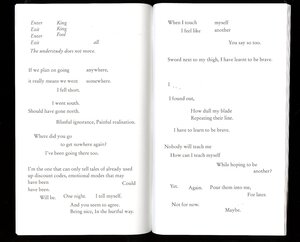"Wintersemester 2023/2024"
| Begriff | Wintersemester 2023/2024 |
| Metakey | Semester (institution:semester) |
| Typ | Keyword |
| Vokabular | HfG |
542 Inhalte
- Seite 1 von 46
Doku_Das ist ein Kinderspiel, not an Apple, 也就⼋年
- Titel
- Doku_Das ist ein Kinderspiel, not an Apple, 也就⼋年
- Autor/in
- Kategorie
- Schlagworte
- Datierung
- 19.01.2024
- Titel
- Doku_Das ist ein Kinderspiel, not an Apple, 也就⼋年
- Urheberrechtshinweis
- © Hangyan Chen
- Freigabe Nutzung HfG
- Beziehung/Funktion
- Semester
- Studiengang
- Typ der Abschlussarbeit
- Importiert am
- 31.05.2024
- Übergeordnete Sets
- 1
Doku_Das ist ein Kinderspiel, not an Apple, 也就⼋年
- Titel
- Doku_Das ist ein Kinderspiel, not an Apple, 也就⼋年
- Autor/in
- Kategorie
- Schlagworte
- Datierung
- 19.01.2024
- Titel
- Doku_Das ist ein Kinderspiel, not an Apple, 也就⼋年
- Urheberrechtshinweis
- © Hangyan Chen
- Freigabe Nutzung HfG
- Beziehung/Funktion
- Semester
- Studiengang
- Typ der Abschlussarbeit
- Importiert am
- 31.05.2024
- Übergeordnete Sets
- 1
Doku_Das ist ein Kinderspiel, not an Apple, 也就⼋年
- Titel
- Doku_Das ist ein Kinderspiel, not an Apple, 也就⼋年
- Autor/in
- Kategorie
- Schlagworte
- Datierung
- 19.01.2024
- Titel
- Doku_Das ist ein Kinderspiel, not an Apple, 也就⼋年
- Urheberrechtshinweis
- © Hangyan Chen
- Freigabe Nutzung HfG
- Beziehung/Funktion
- Semester
- Studiengang
- Typ der Abschlussarbeit
- Importiert am
- 31.05.2024
- Übergeordnete Sets
- 1
Doku_Das ist ein Kinderspiel, not an Apple, 也就⼋年
- Titel
- Doku_Das ist ein Kinderspiel, not an Apple, 也就⼋年
- Autor/in
- Kategorie
- Schlagworte
- Datierung
- 19.01.2024
- Titel
- Doku_Das ist ein Kinderspiel, not an Apple, 也就⼋年
- Urheberrechtshinweis
- © Hangyan Chen
- Freigabe Nutzung HfG
- Beziehung/Funktion
- Semester
- Studiengang
- Typ der Abschlussarbeit
- Importiert am
- 31.05.2024
- Übergeordnete Sets
- 1
Doku_Das ist ein Kinderspiel, not an Apple, 也就⼋年
- Titel
- Doku_Das ist ein Kinderspiel, not an Apple, 也就⼋年
- Untertitel
- Dokumentation
- Autor/in
- Kategorie
- Schlagworte
- Datierung
- 19.01.2024
- Titel
- Doku_Das ist ein Kinderspiel, not an Apple, 也就⼋年
- Urheberrechtshinweis
- © Hangyan Chen
- Freigabe Nutzung HfG
- Beziehung/Funktion
- Semester
- Studiengang
- Typ der Abschlussarbeit
- Importiert am
- 31.05.2024
- Übergeordnete Sets
- 1
Dokumentation deutsch
- Titel
- Dokumentation deutsch
- Autor/in
- Kategorie
- Schlagworte
- Datierung
- 30.10.2023
- Titel
- Dokumentation deutsch
- Titel (en)
- documentation german
- Urheberrechtshinweis
- © Marisa Gaab
- Rechtsschutz/Lizenz
- Freigabe Nutzung HfG
- Medienersteller/in
- Beziehung/Funktion
- Projektleiter/in
- Semester
- Studiengang
- Typ der Abschlussarbeit
- Importiert am
- 27.05.2024
- Übergeordnete Sets
- 1
Dokumentation englisch
- Titel
- Dokumentation englisch
- Autor/in
- Kategorie
- Schlagworte
- Datierung
- 30.10.2023
- Titel
- Dokumentation englisch
- Titel (en)
- documentation englisch
- Urheberrechtshinweis
- © Marisa Gaab
- Rechtsschutz/Lizenz
- Freigabe Nutzung HfG
- Medienersteller/in
- Beziehung/Funktion
- Projektleiter/in
- Semester
- Studiengang
- Typ der Abschlussarbeit
- Importiert am
- 27.05.2024
- Übergeordnete Sets
- 1
dying one_Ausschnitt
- Titel
- dying one_Ausschnitt
- Titel (en)
- a staged performance at a place no longer quiet
- Untertitel des Projekts/Werks (en)
- Snippet(!) of one of the installation's five videos
- Autor/in
- Schlagworte
- Datierung
- 06.12.2023
- Sprache
- Ort: Institution
- Stadt
- Land
- Titel
- dying one_Ausschnitt
- Titel (en)
- dying one_snippet
- Urheberrechtshinweis
- © Jonathan Blaschke
- Rechtsschutz/Lizenz
- Medienersteller/in
- Medien-Beschreibung
- Dauer: 2:19 Minuten, Format: mp4
- Projektleiter/in
- Semester
- Studiengang
- Typ der Abschlussarbeit
- Importiert am
- 15.02.2024
- Übergeordnete Sets
- 1
Epilogue to a staged performance at a place no longer quiet_01
- Titel
- Epilogue to a staged performance at a place no longer quiet_01
- Untertitel
- Publikation zur Ausstellung "a staged performance at a place no longer quiet"
- Autor/in
- Beschreibung (en)
- The publication to my exhibition serves not as an explanation but as an extension of my shown work. Printed on old paper stock and staple bound the publication recalls the revealing of the structural elements of narration and immersion in my exhibition. The texts are extended fragments of the animated characters' monologues.
- Kategorie
- Typ des Projekts/Werks
- Mitwirkende
- Abmessungen
- 18,5 x 30cm
- Ort: Institution
- Stadt
- Land
- Titel
- Epilogue to a staged performance at a place no longer quiet_01
- Urheberrechtshinweis
- © Jonathan Blaschke
- Rechtsschutz/Lizenz
- Medienersteller/in
- Beziehung/Funktion
- Medien-Beschreibung
- Die Publikation zu meiner Ausstellung dient nicht als Erklärung, sondern als Erweiterung meiner gezeigten Arbeit. Gedruckt auf altem Papier und mit Klammerheftung erinnert die Publikation an die Offenlegung der Strukturelemente der Narration und Immersion in meiner Ausstellung. Die Texte sind erweiterte Fragmente der Monologe der animierten Figuren.
- Medien-Beschreibung (en)
- The publication to my exhibition serves not as an explanation but as an extension of my shown work. Printed on old paper stock and staple bound the publication recalls the revealing of the structural elements of narration and immersion in my exhibition. The texts are extended fragments of the animated characters' monologues.
- Semester
- Studiengang
- Typ der Abschlussarbeit
- Importiert am
- 16.02.2024
- Übergeordnete Sets
- 1
Epilogue to a staged performance at a place no longer quiet_02
- Titel
- Epilogue to a staged performance at a place no longer quiet_02
- Untertitel
- Publikation zur Ausstellung "a staged performance at a place no longer quiet"
- Autor/in
- Beschreibung (en)
- The publication to my exhibition serves not as an explanation but as an extension of my shown work. Printed on old paper stock and staple bound the publication recalls the revealing of the structural elements of narration and immersion in my exhibition. The texts are extended fragments of the animated characters' monologues.
- Kategorie
- Typ des Projekts/Werks
- Mitwirkende
- Abmessungen
- 18,5 x 30cm
- Ort: Institution
- Stadt
- Land
- Titel
- Epilogue to a staged performance at a place no longer quiet_02
- Urheberrechtshinweis
- © Jonathan Blaschke
- Rechtsschutz/Lizenz
- Medienersteller/in
- Beziehung/Funktion
- Medien-Beschreibung
- Die Publikation zu meiner Ausstellung dient nicht als Erklärung, sondern als Erweiterung meiner gezeigten Arbeit. Gedruckt auf altem Papier und mit Klammerheftung erinnert die Publikation an die Offenlegung der Strukturelemente der Narration und Immersion in meiner Ausstellung. Die Texte sind erweiterte Fragmente der Monologe der animierten Figuren.
- Medien-Beschreibung (en)
- The publication to my exhibition serves not as an explanation but as an extension of my shown work. Printed on old paper stock and staple bound the publication recalls the revealing of the structural elements of narration and immersion in my exhibition. The texts are extended fragments of the animated characters' monologues.
- Semester
- Studiengang
- Typ der Abschlussarbeit
- Importiert am
- 16.02.2024
- Übergeordnete Sets
- 1
Epilogue to a staged performance at a place no longer quiet_03
- Titel
- Epilogue to a staged performance at a place no longer quiet_03
- Untertitel
- Publikation zur Ausstellung "a staged performance at a place no longer quiet"
- Autor/in
- Beschreibung (en)
- The publication to my exhibition serves not as an explanation but as an extension of my shown work. Printed on old paper stock and staple bound the publication recalls the revealing of the structural elements of narration and immersion in my exhibition. The texts are extended fragments of the animated characters' monologues.
- Kategorie
- Typ des Projekts/Werks
- Mitwirkende
- Abmessungen
- 18,5 x 30cm
- Ort: Institution
- Stadt
- Land
- Titel
- Epilogue to a staged performance at a place no longer quiet_03
- Urheberrechtshinweis
- © Jonathan Blaschke
- Rechtsschutz/Lizenz
- Medienersteller/in
- Beziehung/Funktion
- Medien-Beschreibung
- Die Publikation zu meiner Ausstellung dient nicht als Erklärung, sondern als Erweiterung meiner gezeigten Arbeit. Gedruckt auf altem Papier und mit Klammerheftung erinnert die Publikation an die Offenlegung der Strukturelemente der Narration und Immersion in meiner Ausstellung. Die Texte sind erweiterte Fragmente der Monologe der animierten Figuren.
- Medien-Beschreibung (en)
- The publication to my exhibition serves not as an explanation but as an extension of my shown work. Printed on old paper stock and staple bound the publication recalls the revealing of the structural elements of narration and immersion in my exhibition. The texts are extended fragments of the animated characters' monologues.
- Semester
- Studiengang
- Typ der Abschlussarbeit
- Importiert am
- 16.02.2024
- Übergeordnete Sets
- 1
Epilogue to a staged performance at a place no longer quiet_04
- Titel
- Epilogue to a staged performance at a place no longer quiet_04
- Untertitel
- Publikation zur Ausstellung "a staged performance at a place no longer quiet"
- Autor/in
- Beschreibung (en)
- The publication to my exhibition serves not as an explanation but as an extension of my shown work. Printed on old paper stock and staple bound the publication recalls the revealing of the structural elements of narration and immersion in my exhibition. The texts are extended fragments of the animated characters' monologues.
- Kategorie
- Typ des Projekts/Werks
- Mitwirkende
- Abmessungen
- 18,5 x 30cm
- Ort: Institution
- Stadt
- Land
- Titel
- Epilogue to a staged performance at a place no longer quiet_04
- Urheberrechtshinweis
- © Jonathan Blaschke
- Rechtsschutz/Lizenz
- Medienersteller/in
- Beziehung/Funktion
- Medien-Beschreibung
- Die Publikation zu meiner Ausstellung dient nicht als Erklärung, sondern als Erweiterung meiner gezeigten Arbeit. Gedruckt auf altem Papier und mit Klammerheftung erinnert die Publikation an die Offenlegung der Strukturelemente der Narration und Immersion in meiner Ausstellung. Die Texte sind erweiterte Fragmente der Monologe der animierten Figuren.
- Medien-Beschreibung (en)
- The publication to my exhibition serves not as an explanation but as an extension of my shown work. Printed on old paper stock and staple bound the publication recalls the revealing of the structural elements of narration and immersion in my exhibition. The texts are extended fragments of the animated characters' monologues.
- Semester
- Studiengang
- Typ der Abschlussarbeit
- Importiert am
- 16.02.2024
- Übergeordnete Sets
- 1
